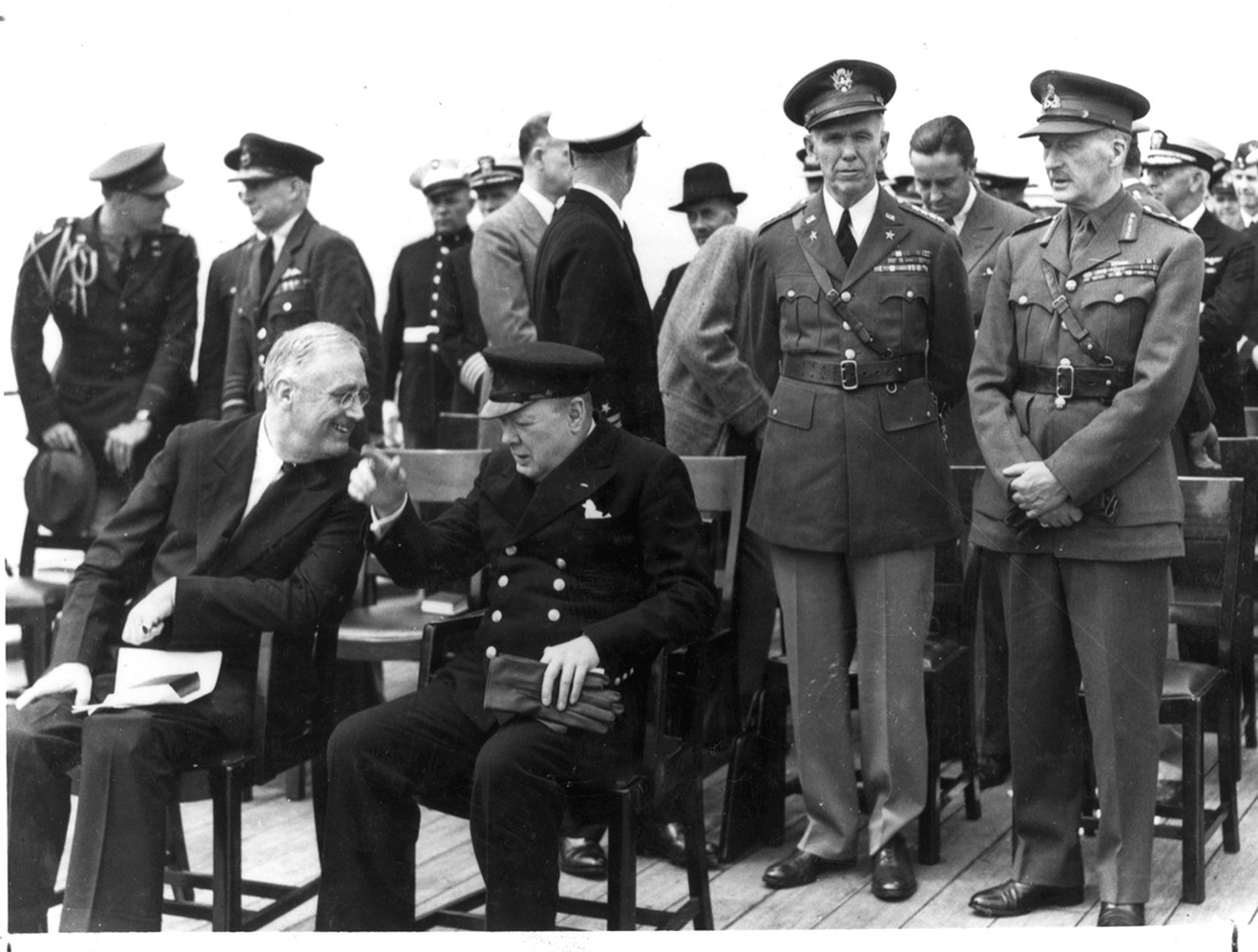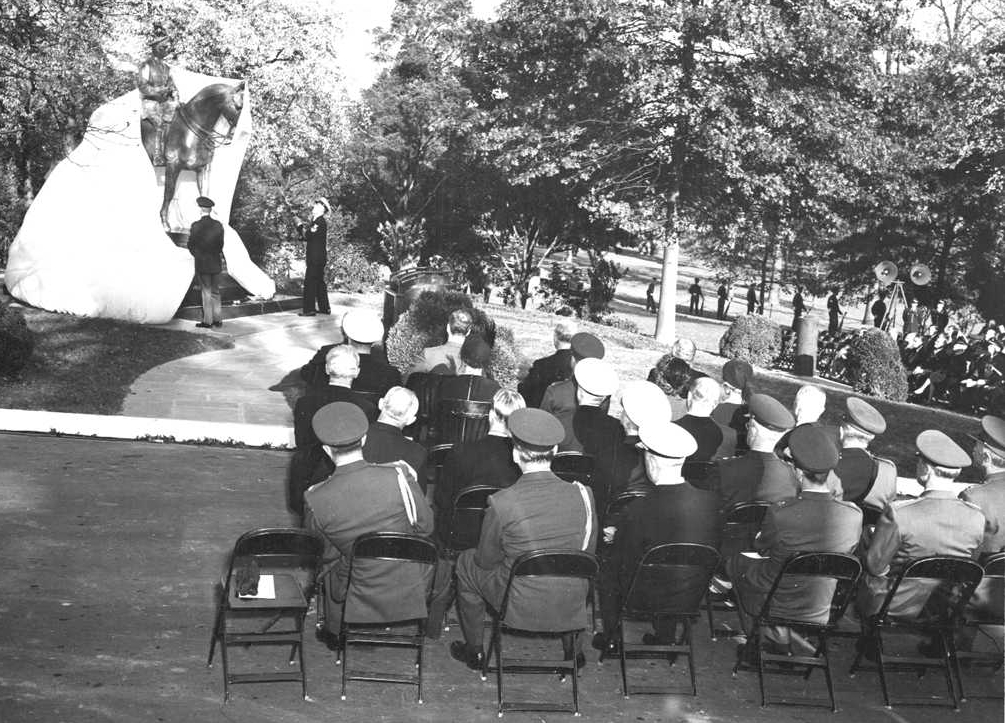The relationship between General George C. Marshall and Field Marshal Sir John G. Dill has been considered one of the most critically important personal relationships to the success of the Allies during World War II.  Although Dill was a British Army officer, his ability to disagree with Prime Minister Winston Churchill’s opinions, to talk with extreme frankness, and to understand and fairly represent U.S. perspectives to the British leadership won him many admirers, including General Marshall.
Although Dill was a British Army officer, his ability to disagree with Prime Minister Winston Churchill’s opinions, to talk with extreme frankness, and to understand and fairly represent U.S. perspectives to the British leadership won him many admirers, including General Marshall.
Marshall first met Dill, who was serving as the chief of the British Imperial Staff, during the Atlantic Conference in August 1941. During the conference, Marshall and Dill discovered that they both believed that frank discussions of issues would enable the British-American alliance to function most efficiently and avoid unnecessary disagreements. When Dill became the Chief of the British Join Staff Mission in Washington, D.C., in 1942, he and Marshall worked very closely to keep the British-American alliance together and moving towards its objectives.
Like Marshall, Dill recognized that the quickest way to defeat Nazi Germany was through an alliance, but he also understood the vast complexities that arose when countries with different interests sought to coordinate their military activities. In some cases, Dill supported the American position on issues against Churchill and the British Chiefs of Staff when he believed that it would be of greater benefit to the Allied war effort. In a 1957 interview with his biographer, Dr. Forrest C. Pogue, Marshall recalled Dill “not only had remarkable character, but he had even more remarkable in carrying out his duties… His opinions of affairs for quite a while didn’t jibe with those of Mr. Churchill and some of the others and that made it a rather delicate business, but he talked with extreme frankness.”
Following Dill’s death on November 4, 1944, Marshall released a statement noting Dill’s vital contributions to the British-American war effort. Marshall said:
I know of no man who has made a greater contribution to that most vital requirement to an Allied victory, the complete military cooperation between British and American forces. His death signals a loss of no less magnitude for the United States than for his own country, for the direction of his matchless efforts towards combined victory gave him strength to lay aside all other considerations.
Marshall expressed more personal feelings in a letter to Lady Dill, writing “I know that it is not necessary for me to tell you of my distress of mind at this moment. Officially the United States has suffered a heavy loss, and I personally have lost a dear friend, unique in my lifetime, and never to be out of my mind.”
 To show his appreciation for Dill’s outstanding service to the United States, Marshall arranged for Dill to be buried in Arlington National Cemetery despite regulations against the burial of non-American soldiers in that cemetery. Marshall also led the movement to have an equestrian statue of Dill placed at his gravesite. Six years after Dill’s death, Marshall spoke at the unveiling of the statue. Marshall paid tribute to Dill by noting that Dill’s “influence was greater than that of probably any other individual in welding together the military forces of our two countries. It was this complete accord that more than any other single factor gave us the victory in Europe.” He added “I have never known a man whose high character shone so clearly in the honest directness of his every action. He was an inspiration to us all in those trying days…”
To show his appreciation for Dill’s outstanding service to the United States, Marshall arranged for Dill to be buried in Arlington National Cemetery despite regulations against the burial of non-American soldiers in that cemetery. Marshall also led the movement to have an equestrian statue of Dill placed at his gravesite. Six years after Dill’s death, Marshall spoke at the unveiling of the statue. Marshall paid tribute to Dill by noting that Dill’s “influence was greater than that of probably any other individual in welding together the military forces of our two countries. It was this complete accord that more than any other single factor gave us the victory in Europe.” He added “I have never known a man whose high character shone so clearly in the honest directness of his every action. He was an inspiration to us all in those trying days…”
Today the graves of Marshall and Dill can both be found a few sections away from one another in Arlington National Cemetery. The proximity of the graves serves as symbol of their vital wartime relationship and close personal friendship.
